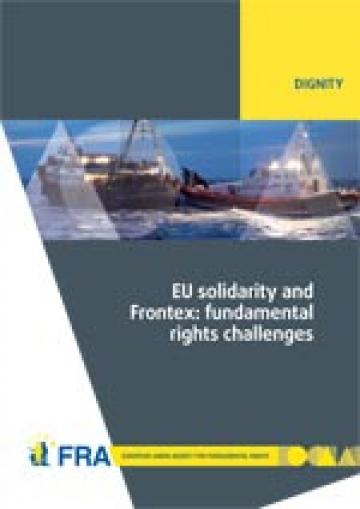The EU has established some solidarity measures to support EU Member States most affected by arrivals. These include EU funding, which is currently being revisited with the proposal to create two new funds: the Asylum and Migration Fund and the Internal Security Fund (in particular its instrument on borders and visas). The language of the instrument on borders and visas contains few references to fundamental rights. Fundamental rights are not addressed among the instrument’s objectives and are therefore not part of the indicators proposed to measure achievements. The allocation of funds appears to be security focused and based on threat levels determined through consultation with Frontex.
Another solidarity tool is Frontex operational support. Considerable resources are devoted to Frontexcoordinated operations at sea. Such sea operations have primarily taken place in the Mediterranean and in the eastern Atlantic off the west African coast, with some 50 carried out by the end of 2012. Most Frontex maritime operations are organised under the EPN framework, a permanent regional border security network for the southern maritime borders of the EU.
Frontex-coordinated operations at sea have raised considerable fundamental rights concerns. In response to these, Frontex has taken significant steps to enhance fundamental rights compliance, by: spelling out specific duties in documents governing an operation; featuring fundamental rights more prominently in training activities; and setting up a clear duty for guest officers deployed through Frontex to report fundamental rights violations. Nevertheless, there are still aspects that remain to be addressed.
